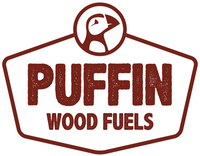
In order to be able to claim your renewable heat incentive (RHI), your wood pellets must come from a supplier registered on the Biomass Suppliers list (BSL). As part of your RHI commitment you will need to quote their BSL number on your RHI documents.
There are many different grades of wood pellets available on the market, but the main quality benchmark is ENPlusA1, which is recommended by most boiler manufactures.
Woodlets are ENPlusA1 and our parent company, Land Energy, is BSL registered so your RHI payments are safe with us. For more detailed information on the quality of wood pellets please see our dedicated page Wood Pellet Quality.
| Advantages of Wood pellets | Disadvantages of Wood pellets |
| Reduced carbon emissions as compared to using fossil fuels. | Pellet fuel in bulky and need space to be stored |
| Wood pellets are manufactured and widely available in the UK | |
| Wood pellets are much more price stable than many other forms of fuel | |
| Wood pellets produce equivalent heat to traditional fossils fuels | |
| Wood pellets burn cleanly and are more convenient than logs or wood chips |
| Advantages of Wood pellets boilers | Disadvantages of Wood pellet boilers |
| Wood fuel is cost effective | Wood pellet boilers require regular maintenance |
| Wood pellets are small in size | Storing of wood pellets requires large storage space |
| Wood pellets are environmentally friendly | Initial costs |
| Wood pellets boilers are energy efficient | Traditional wood pellet boilers require regular cleaning. |
| Wood pellets are a renewable source | Wood pellet boilers have ash draws that need to be emptied. |
| Wood pellets boilers can often be integrated with your current wet system |

